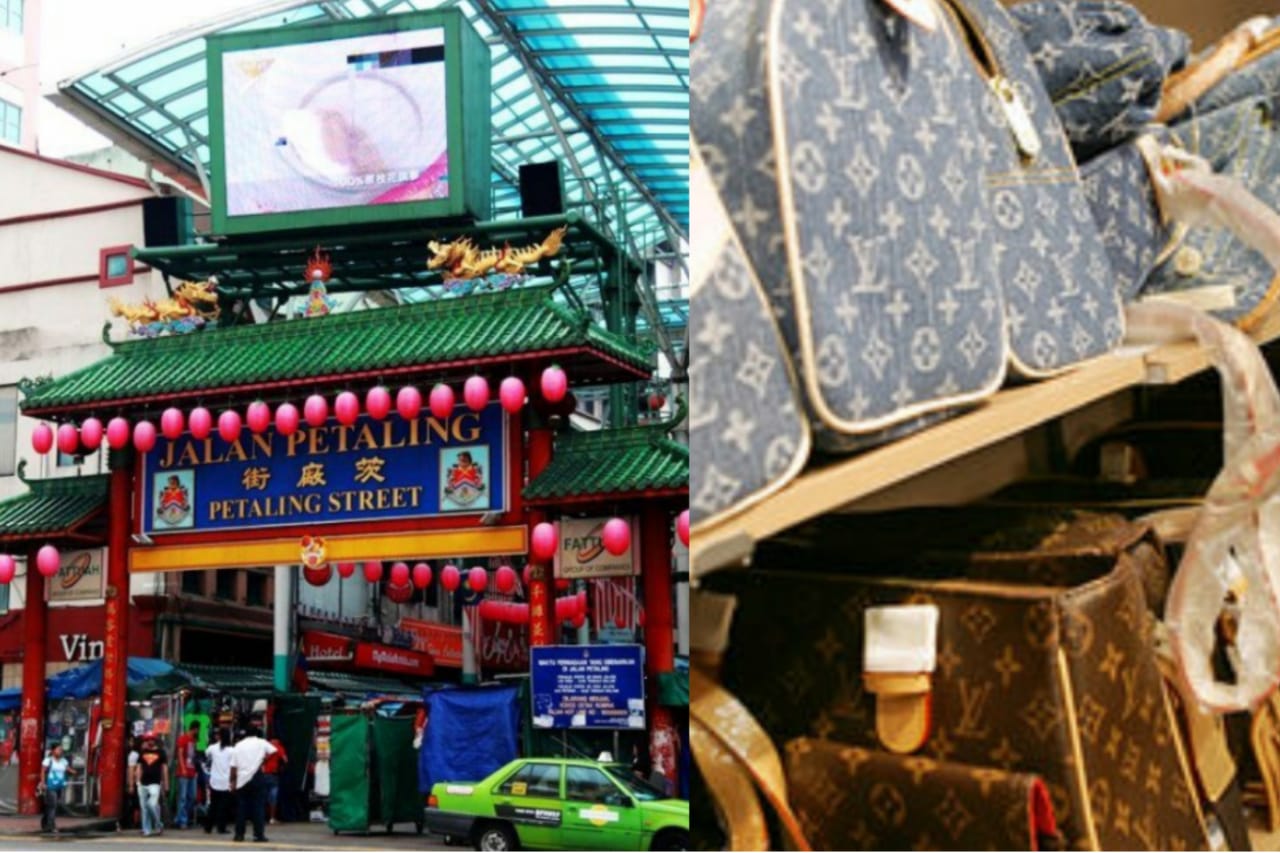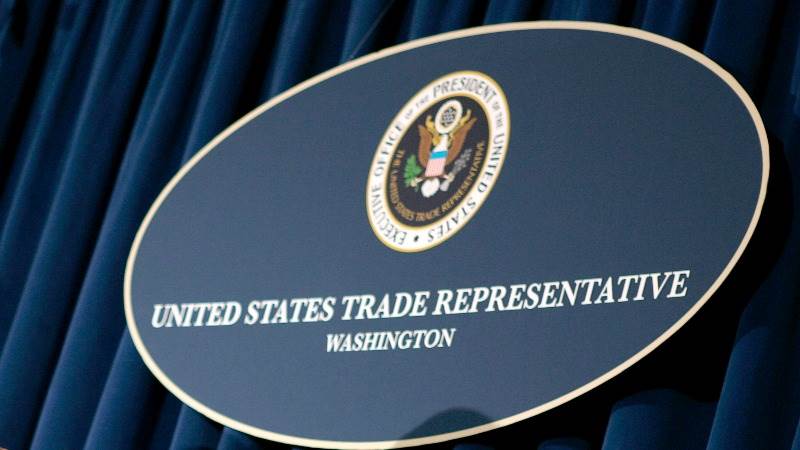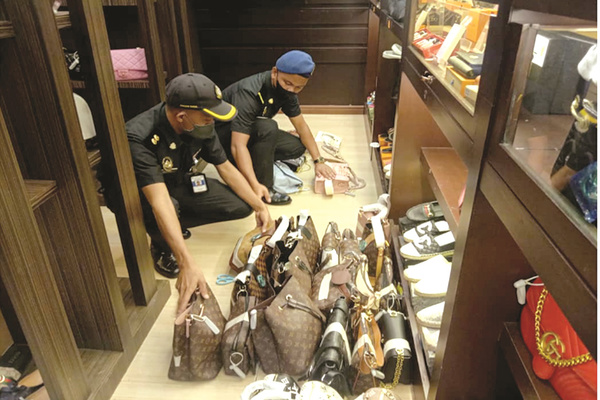Petaling Street Included In USA’s List of ‘Most Notorious Markets For Counterfeit Products’
 Thirsty for JUICE content? Quench your cravings on our Instagram, TikTok and WhatsApp
Thirsty for JUICE content? Quench your cravings on our Instagram, TikTok and WhatsApp

Apart from great hawker food and ‘shady’ activities, what else is Petaling Street known for? According to the USA’s List of Most Notorious Markets For Counterfeit Products, it’s just that- straight-up knock offs.
Personally, as someone who used to frequent the area in my teen years, one of my most prominent memories is being at one of the stalls selling ‘designer’ handbags with a family of foreigners.
The daughter points to the ‘Balenciaga’ bag on the top shelf and asks her dad, “Is this real?”
He simply cocks his head to the side and replies, “Well, it’s a real bag.”
Minutes later, the item is removed from the shelf and placed on a side table, revealing its zipper that reads “BALANCAGA”.

While “inspired design” fails can be amusing and are bound to be LOL-ed at on Twitter, there is actually a bunch of reasons why purchasing counterfeit goods can pose potential harm.
Apart from causing real companies who own the original designs to lose revenue, these copy-paste brands are disreputable from every angle- namely assets, material sourcing, labour systems and the direction of their profits. Yes, this means you could very well be contributing to illicit and unethical practices, whilst encouraging a form of large-scale plagiarism.

In its most recent report, the USTR investigation cited a total of 39 online and 33 physical markets in 18 nations, including China, Vietnam, India, and the Philippines.
The report indicates that Petaling Street is a “well-known market in Kuala Lumpur” that offers a big selection of fake watches, purses, sunglasses, wallets, and other consumer products.
“While market activity has not yet reached pre-pandemic levels due to the continued slump in international travel, the majority of the commodities that are currently on the market seem to be fake,” reads the assessment.

The local government’s lack of initiative in carrying out enforcement actions without the right holders’ consent was also criticised in the report, and popular e-commerce sites are featured on the list based on research conducted toward its online market.
The report also alleged that when attempting to initiate enforcement actions, right holders express difficulty stemming from local favouritism and organised crime being prevalent at this market.
Finally, the results asserted that right holders are forced to make significant efforts before the local authorities will respond to their complaints. In particular, it stated, “right holders are frequently expected to provide substantial evidence before authorities agree to intervene.”
Either way, might wanna think twice before you bag that ‘budget’ lip kit.


 Get Audio+
Get Audio+ Hot FM
Hot FM Kool 101
Kool 101 Eight FM
Eight FM Fly FM
Fly FM Molek FM
Molek FM

